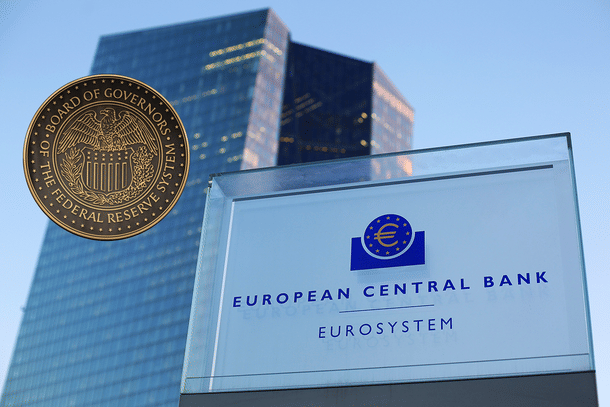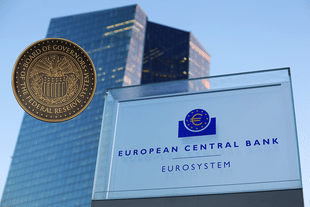Context
Bad US, EU Economics Is Negatively Impacting Better-Performing Economies
Ujjawal Mishra
Jul 14, 2022, 06:29 PM | Updated 06:28 PM IST
Save & read from anywhere!
Bookmark stories for easy access on any device or the Swarajya app.


The world economy has landed in a ditch because of the mismanagement of the US and EU's fiscal and monetary policies, and their corrective measures are now impacting all economies.
Context: Two key statistical figures point to the bad state of economies in the anglosphere.
How serious it is: In the US, considering an inflation rate of 9.1 per cent:
The US real interest rate, given a US Federal Reserve target funds rate of 1.5-1.75 per cent, throws up a negative real interest rate of a whopping 7 per cent and more.
The US Fed is whole miles behind the curve.
The real interest rate is the interest rate adjusted for inflation.
When it is negative, it means that borrowers are credited with interest for borrowing money.
Bad in Europe too: The ECB is doing even more badly, with its key rates either at zero or negative.
Though it will raise rates later this month, the fact is, eurozone inflation is as high as 8.6 per cent.
In contrast, the ECB’s key rates for refinancing operations, marginal lending facility, and deposit facility have remained unchanged for long at zero, 0.25 per cent, and negative 0.5 per cent respectively.
Real interest rates are a mind-boggling negative 8 per cent and more.
India is faring well: Unlike the US and ECB, the RBI has done an impressive job in handling interest rates.
The RBI’s repo rate of 4.9 per cent is just over 2 per cent behind the consumer inflation rate of 7 per cent.
A sensible conclusion is that the RBI is managing monetary policy far better than the Western central banks.
Not entirely Russia's fault: One can argue that the massive surge in Western inflation rates is the result of the Russia-Ukraine war, but this is half-truth at best.
How Europe and the US responded to the war also made a difference, besides the war being launched by Vladimir Putin.
Sanctions constitute bad economics even if they are deemed politically necessary to punish an aggressor.
Russia is at fault for invading Ukraine, but so is the West, as they refused to accept Russia’s legitimate security concerns over the expansion of NATO right up to its borders.
The impact: Western sanctions, which included draconian decisions to freeze Russia’s dollar reserves and asking Western companies to withdraw from Russia, ensured that the bulk of the costs of the war were loaded on to Europe and the rest of the world, as energy prices shot up everywhere.
The US, which is fairly self-sufficient in oil and gas, was sitting pretty, but still managed to let inflation rip.
The Europeans, who were dependent on Russian gas and oil, suffered more along with the rest of the world.
Politics at play too: Monetary policy is seldom insulated from political pressures.
The ECB and the US Fed are independent institutions, but the proof of this alleged independence should have come from aggressive policy actions long before inflation went out of control.
But neither the ECB nor the Fed did much when they could have.
In India, the RBI Governor had no qualms about talking to the Finance Ministry about its own concerns.
So, he was able to get the fiscal side to do its bit to reduce inflation.
The Western idea, that independence means fiscal and monetary sides behaving like they are on separate planets, is past its sell-by date.
When economies are in trouble, it is dialogue and coordinated action that works best.
Better performers suffering: When US interest rates are so low in contrast to their inflation rates, investors have no option but to pull out money from economies that are doing well (like India) and disrupting their markets.
Bad US economics is negatively impacting the economies of the better-performing ones.
Bottom line: Western economic theory and practices are now proving to be a millstone around their economies’ necks because common sense is missing from policy. They are dragging the rest of the world down with them.





